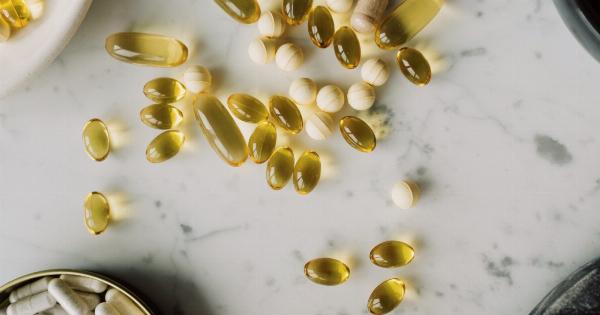Eggs are one of the most versatile foods around. Used in baking, cooking and as a stand-alone food, eggs are a staple in many diets around the world. Not only are they tasty, but they are also packed with protein, vitamins, minerals, and choline.
However, have you ever considered the longevity of eggs and how long they can last before going bad?.
According to a study conducted by the University of Georgia’s Department of Food Science and Technology, eggs can last for up to five weeks from the day they were laid.
However, to truly understand the secrets behind eggs’ longevity and how to make them last even longer, we need to investigate the science behind eggs.
The Science behind Eggs
Eggs are produced by female birds, and they are designed to nourish a developing chick until it hatches. The outside of an egg is made up of a hard calcium carbonate shell, which protects the egg from the outside environment.
Inside the shell, there are two main parts: the yolk and the albumen (or egg white). The yolk contains most of the egg’s nutrients, including protein, fat, and cholesterol, while the albumen contains the majority of the egg’s water and protein.
When an egg is laid, it is coated in a protective layer called the bloom or cuticle. This layer helps prevent bacteria from entering the egg and keeps moisture from escaping, which helps the egg retain its freshness.
However, over time, the bloom can wear off, leaving the egg more vulnerable to bacterial growth and moisture loss.
Factors Affecting Egg Longevity
There are many factors that can affect the longevity of an egg, including:.
- The age of the egg when it was laid
- The temperature at which the egg is stored
- The humidity of the environment where the egg is stored
- The cleanliness of the egg when it was laid
As eggs age, they lose moisture and carbon dioxide, which means the air cell inside the egg becomes larger. This process can cause the yolk and the white to separate, and the egg may become more watery.
The egg’s membrane can also weaken over time, making it more susceptible to bacterial growth.
Eggs stored at room temperature will spoil much faster than those stored in the refrigerator. This is because bacteria grow quickly when the temperature is between 40°F and 140°F.
In contrast, when eggs are stored in a cool environment, like a refrigerator at 40°F or lower, the growth of bacteria slows down, helping to extend the egg’s shelf life.
The humidity of the environment where the eggs are stored can also affect egg longevity. Eggs stored in a dry environment will lose moisture more quickly, which can cause them to spoil faster.
On the other hand, eggs stored in a humid environment can absorb moisture from the air, which can also lead to spoilage. A relative humidity of around 70% is recommended for egg storage.
Finally, the cleanliness of the egg when it was laid can also affect its longevity. Eggs that are dirty or cracked can be more susceptible to bacterial growth, which can cause them to spoil faster.
That’s why it’s essential to wash eggs before storing them and to discard any eggs that are cracked or damaged.
Tips for Extending the Life of Your Eggs
Now that we understand the science behind egg longevity and what factors can affect it, let’s look at some tips for extending the life of our eggs:.
- Store eggs in the refrigerator at 40°F or below
- Keep eggs in their original carton to protect them
- Don’t wash eggs until you’re ready to use them
- Dispose of any eggs that are cracked or damaged
- Use older eggs in baking or cooking and fresher eggs for dishes like poached eggs or omelets
By following these simple tips, you can extend the life of your eggs and ensure that they’re safe to eat. However, it’s essential to note that even with the best storage practices, eggs will eventually spoil.
That’s why it’s essential to check the freshness of eggs before using them in any recipe.
Conclusion
Eggs are a nutritious and versatile food that can last for up to five weeks when stored correctly.
Understanding the factors that affect egg longevity and knowing how to store eggs correctly can help you avoid food waste and ensure that your eggs are safe to eat. By following our tips for extending the life of your eggs, you can enjoy your favorite egg dishes for longer.






























